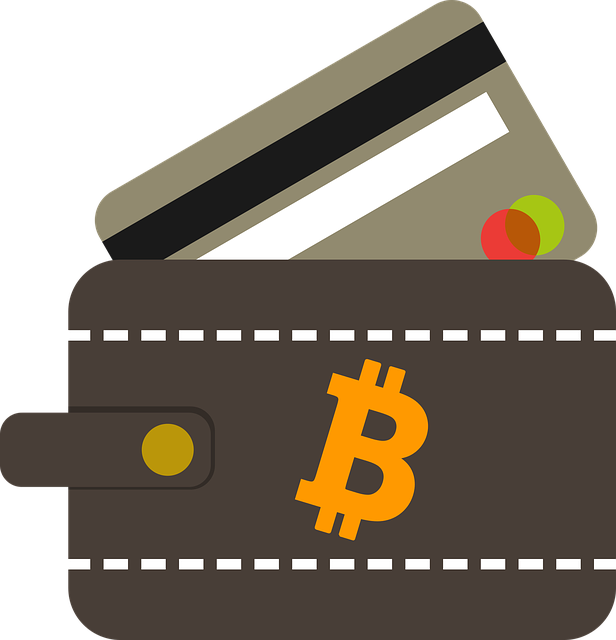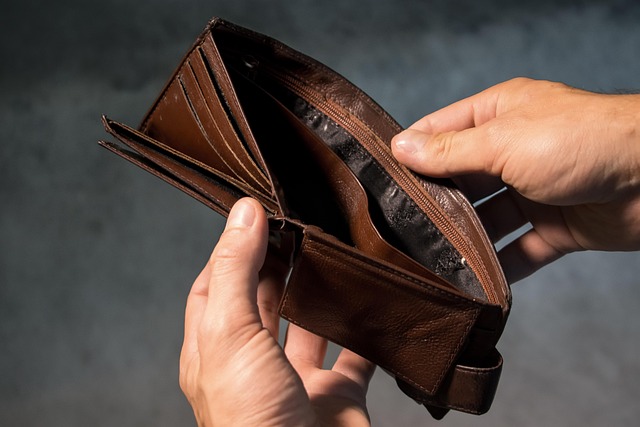Unlocking the Future: Your Guide to Crypto Wallets
In the digital age, understanding how to effectively use crypto wallets is essential for anyone looking to navigate the world of cryptocurrency. As the popularity of cryptocurrencies continues to grow, so does the need for secure, efficient, and user-friendly wallets to store and manage these digital assets. This comprehensive guide aims to equip you with the knowledge and tools necessary to select the right crypto wallet, understand its functionalities, and optimize your crypto transactions.

What is a Crypto Wallet?
A crypto wallet is a digital tool that allows users to store, manage, and transact with their cryptocurrencies. Unlike traditional wallets, crypto wallets don’t physically hold money. Instead, they store your private and public keys and interact with various blockchains to enable users to send and receive digital currency. Essentially, these wallets facilitate the management of your digital assets. Crypto wallets come in various forms, including hardware wallets, software wallets, mobile wallets, and online wallets. Understanding how each type functions and their advantages can significantly enhance your crypto experience. Furthermore, it’s crucial to understand that while crypto wallets are necessary for managing cryptocurrencies, they do not provide the same level of protection as traditional financial institutions; therefore, users must exercise due diligence in securing their wallets.
Types of Crypto Wallets
Understanding the different types of crypto wallets is crucial for making informed decisions about your digital assets. Here’s a deeper dive into the various types:
1. Hardware Wallets
Hardware wallets are physical devices that store your cryptocurrencies offline, making them incredibly secure. These wallets are ideal for users who hold large amounts of cryptocurrency and want to protect their assets from online threats. Popular hardware wallets include Ledger and Trezor. They often come with features such as a secure chip, which encrypts your private keys, and a built-in display for transaction verification, enhancing security further. Additionally, hardware wallets are immune to malware that might infect your computer, ensuring your private keys remain safe. With the increasing sophistication of cyber attacks, the use of hardware wallets is becoming a best practice for long-term holders. When setting up a hardware wallet, it is crucial to follow the manufacturer's guidelines meticulously to avoid any setup errors that could compromise your security. Regularly updating the firmware of your hardware wallet is also advisable, as manufacturers frequently release updates to patch any vulnerabilities. Many hardware wallets also support multiple cryptocurrencies, offering flexibility for users who wish to diversify their portfolios.
2. Software Wallets
Software wallets are applications that can be downloaded on your computer or mobile device. They come in two forms: desktop wallets and mobile wallets. While they offer convenience and accessibility, they are more vulnerable to hacking compared to hardware wallets. Examples include Exodus and Electrum. Desktop wallets often provide a higher level of security compared to mobile wallets, but users should ensure they have robust antivirus software and firewalls in place. Software wallets can also support a wide range of cryptocurrencies, making them versatile for users. It’s important to choose software wallets that are regularly updated and come from reputable sources to minimize risks. Moreover, users should familiarize themselves with wallet recovery processes and keep their recovery phrases secure, as losing access could lead to permanent loss of funds. Implementing regular backups of your wallet data can also protect against loss due to software corruption or device failure. Users should also take note of the wallet's transaction history features, which can help in tracking spending and managing budgets.
3. Online Wallets
Online wallets, also known as web wallets, are hosted on the cloud and can be accessed via any device connected to the internet. While they are highly convenient, they carry a higher risk of being hacked. Popular online wallets include Coinbase and Binance. It's vital to choose reputable online wallet providers and be cautious about phishing scams, as these wallets may not offer the same level of security as hardware or software wallets. Moreover, online wallets often provide easy access to trading and other financial services, making them appealing for active traders. However, users should consider limiting the amount of cryptocurrency stored in online wallets and transferring larger holdings to more secure options. Regularly changing your passwords and enabling notifications for account activity can also bolster security. Additionally, using a password manager can help create and store complex passwords securely, reducing the risk of unauthorized access. Users should also be aware of the potential for downtime or service interruptions with online wallets, which could affect access to funds when needed.
4. Mobile Wallets
Mobile wallets are applications designed for smartphones, making them suitable for users who want to manage their cryptocurrency on the go. They often offer features like QR code scanning for easy transactions and may include additional functionalities such as price alerts and market tracking. Examples include Trust Wallet and Mycelium. When using mobile wallets, users should enable biometric authentication (fingerprint or facial recognition) for added security. Furthermore, mobile wallets can also facilitate the use of decentralized applications (dApps), which are gaining popularity in the blockchain space. While mobile wallets offer flexibility, users should remain vigilant about securing their devices against theft and malware. Regularly backing up your wallet and understanding how to restore it in case of device failure is also essential. Users should also be cautious about installing third-party apps that could compromise wallet security, as well as being mindful of the permissions granted to these applications.
Choosing the Right Crypto Wallet
When choosing a crypto wallet, consider the following factors:
- Security: Look for wallets that offer two-factor authentication, backup options, and multi-signature capabilities. Assess the wallet's reputation and read reviews regarding its security history. It's also beneficial to look for wallets that have undergone third-party security audits. Security should be your top priority, particularly if you plan to store a significant amount of cryptocurrency. Additionally, consider using cold storage solutions for long-term holdings, which can further enhance security. Familiarize yourself with the wallet's security features and protocols to ensure you fully understand the protections in place.
- User Experience: Opt for wallets that provide an intuitive interface and easy navigation. A user-friendly wallet can significantly enhance your experience, especially if you are new to cryptocurrencies. Consider wallets that offer comprehensive guides and tutorials to assist you in navigating their features. The ability to customize settings can also improve user experience, allowing you to tailor the wallet to your preferences. Check if the wallet supports multi-language options, which can make it more accessible.
- Compatibility: Ensure that the wallet supports the cryptocurrencies you plan to store. Some wallets are multi-currency while others may only support specific coins or tokens. Check for the ability to add custom tokens if you plan to invest in altcoins, as this flexibility can be crucial for diversification. Research the wallet's update history to ensure it continues to support emerging cryptocurrencies, as the crypto space is constantly evolving.
- Customer Support: Good customer service can help resolve issues quickly. Check if the wallet provider offers support through multiple channels, such as email, chat, or phone. Additionally, a robust FAQ section can be invaluable for troubleshooting common issues, providing you with quick solutions. Read user reviews to gauge the responsiveness and effectiveness of the support team, and ensure that there are resources available for troubleshooting and education.

How to Set Up a Crypto Wallet
Setting up a crypto wallet is generally straightforward. Here’s a step-by-step guide:
- Choose Your Wallet: Based on your research, select the type of wallet that best suits your needs, considering factors like security, ease of use, and the cryptocurrencies you intend to manage. Take time to compare different wallets and their features before making a decision. Consider factors like the wallet's history, user reviews, and the company behind the wallet.
- Download and Install: For software wallets, download the application from the official website or app store. For hardware wallets, follow the manufacturer’s instructions to install it and set it up. Ensure that you are on the official site to avoid counterfeit applications. Verify the software integrity before installation by checking hashes or signatures if available, and be cautious of unofficial sources.
- Create an Account: For online wallets, you will need to create an account and provide some personal information. Ensure you use a strong, unique password. Enable any additional security features offered during this process, such as email verification or security questions. Consider using a password manager to keep track of your passwords securely, and regularly update your password as a best practice.
- Secure Your Wallet: Set up a strong password and enable two-factor authentication. This will significantly reduce the risk of unauthorized access. Be sure to keep your passwords in a secure location, separate from your wallet. Regularly update your password to mitigate risks, especially after significant market changes or if you suspect any unauthorized access. Consider enabling notifications for any wallet activity.
- Backup Your Wallet: Make sure to create a backup of your wallet, usually by writing down a recovery phrase. Store this in a secure location, as it is essential for wallet recovery. Some wallets also allow you to back up to cloud storage, but this should be done cautiously, preferably with encryption. Periodically review your backup strategy to ensure its effectiveness and update it as necessary.
Transacting with Your Crypto Wallet
Once your wallet is set up, you can start transacting. Here’s how:
Sending Cryptocurrency
To send cryptocurrency, you will need the recipient's public address. Enter the address and the amount you wish to send. Double-check the details before confirming the transaction, as blockchain transactions are irreversible. It is advisable to send a small test transaction first to ensure the recipient’s address is correct. Keep in mind network fees, which can vary based on the cryptocurrency and current network congestion. Always confirm that you are sending to the correct address, as mistakes can lead to permanent loss of funds. Familiarize yourself with the transaction history in your wallet to track all outgoing and incoming transactions. Additionally, consider utilizing transaction labels to help organize your transfers for future reference. Some wallets may also provide transaction speed options, allowing you to choose a faster confirmation time at a higher fee.
Receiving Cryptocurrency
To receive cryptocurrency, provide your public address to the sender. You can usually find this address in your wallet's interface. It's advisable to use the QR code feature for added convenience and to minimize errors in copying the address. Ensure that the sender is aware of the specific network (e.g., Bitcoin, Ethereum) as different cryptocurrencies have different transaction protocols. It’s also useful to inform them of any necessary details regarding the transaction, such as memo fields for specific platforms. Additionally, consider confirming the transaction status using a blockchain explorer for transparency and peace of mind. This can also help you verify the amount received and any transaction fees deducted. Staying informed about current network conditions can also help you anticipate potential delays in transaction confirmations, as network congestion can lead to longer processing times.
Storing Your Crypto Safely
Security should always be your priority when it comes to storing cryptocurrencies. Here are some best practices:
- Use Hardware Wallets: For long-term storage, hardware wallets are recommended. They are less susceptible to online threats and provide the highest level of security. Consider keeping the device in a safe or secure place when not in use to further protect against physical theft. Regularly check the firmware of your hardware wallet for updates, and ensure the device is legitimate before use.
- Enable Two-Factor Authentication: This adds an extra layer of security to your wallet. Even if someone obtains your password, they would still need the second factor to access your wallet. Consider using authenticator apps rather than SMS for added security, as SMS can be intercepted. Always log out of your wallet when not in use, especially on shared devices, to prevent unauthorized access.
- Keep Your Software Updated: Regular updates ensure that you have the latest security features and patches. Set your wallet to update automatically if possible. Regularly checking for updates can help prevent vulnerabilities, particularly in software wallets that are frequently targeted by hackers. Follow security blogs and forums to stay informed about potential vulnerabilities and best practices.
- Be Wary of Phishing Attacks: Always verify links and avoid sharing your private keys. Educate yourself about common phishing tactics to better protect your assets. Use bookmarks for frequently visited sites to avoid mistyping URLs and falling victim to fraudulent sites. Always double-check the authenticity of communication claiming to be from your wallet provider, and consider using anti-phishing browser extensions to add another layer of protection.

The Importance of Backup
Backing up your wallet is crucial. If you lose access to your wallet, you may lose your cryptocurrencies forever. Most wallets will provide you with a recovery phrase during setup. Write this down and store it in a safe place, separate from your wallet. Consider using a fireproof safe or safety deposit box for added security. Additionally, some users opt to create multiple copies and store them in different secure locations for redundancy, ensuring they can access their funds even in case of unforeseen circumstances. Remember that losing access to your recovery phrase could lead to irreversible loss of your assets. Regularly review your backup procedures and ensure that your recovery methods are accessible yet secure, and consider setting reminders to check on them periodically.
Popular Crypto Wallets to Consider
There are numerous wallets available, and choosing the right one can be overwhelming. Here are some popular options:
1. Binance Wallet
Binance offers a secure wallet that is integrated with its exchange platform. You can create an account and get started with trading by following this link: Binance Wallet Registration. This wallet supports a wide range of cryptocurrencies and offers advanced trading features such as spot trading, futures trading, and staking. Binance also provides educational resources to help users understand the trading process better, making it an ideal choice for both beginners and experienced traders. Be sure to check for promotions or bonuses for new users, as they often provide incentives for first-time deposits. Additionally, Binance's security measures, including regular security audits, contribute to its reputation as a trustworthy platform. Users should also familiarize themselves with Binance's withdrawal limits and security protocols to ensure safe transactions.
2. MEXC Wallet
MEXC is another well-known exchange that provides a user-friendly wallet. You can register and start trading by following this link: MEXC Wallet Registration. It’s perfect for those looking to explore various trading options, including margin trading and various DeFi projects. MEXC also frequently updates its platform to enhance user experience and security, ensuring that users have access to the latest features. Keep an eye on their social media channels for updates on new listings and features. Furthermore, MEXC's community engagement initiatives can provide users with insights into market trends and trading strategies, enhancing the overall trading experience.
3. Bitget Wallet
Bitget is recognized for its derivatives trading platform, and its wallet offers excellent security features. You can register here: Bitget Wallet Registration. The wallet is designed for traders who want to leverage their crypto holdings with options and futures trading capabilities. Bitget also provides tutorials on utilizing advanced trading strategies, catering to both novice and experienced traders. Regularly check their learning resources to keep updated on market trends and trading strategies. The platform’s focus on security and user education makes it a valuable choice for serious traders. Be aware of any trading fees or withdrawal limits that may apply when using Bitget.
4. Bybit Wallet
Bybit is another popular platform among crypto traders, providing a secure wallet option. You can sign up and start trading at this link: Bybit Wallet Registration. It’s known for its high liquidity and diverse trading pairs, making it suitable for both beginners and experienced traders. Bybit also offers a demo trading feature for new users to practice without financial risk, allowing them to familiarize themselves with the platform before committing real funds. Explore their educational materials for insights into market analysis and trading techniques. Bybit's emphasis on user education and support can greatly enhance the trading experience. Users should also familiarize themselves with the platform's trading mechanisms and fee structures to optimize their trading strategies.
Final Thoughts
In conclusion, understanding and selecting the right crypto wallet is essential for anyone looking to invest or trade in cryptocurrencies. The choice of wallet affects not just security but also how easily you can access and use your assets. Always do thorough research and consider your needs before choosing a wallet. With the right tools and knowledge, you can confidently navigate the exciting world of cryptocurrency. Remember that the landscape is constantly evolving, and staying informed is key to making the most of your investments.
For further reading, check out resources such as Investopedia's Guide to Crypto Wallets or CoinDesk's Introduction to Crypto Wallets for deeper insights into wallet functionalities and best practices.
Stay informed about the latest trends and updates in the cryptocurrency space by subscribing to reputable crypto news outlets and participating in community forums. Engaging with the crypto community can enhance your understanding and provide valuable insights into emerging technologies and investment strategies. Consider joining social media groups or following influential figures in the crypto space to broaden your knowledge.
Finally, always remember that the cryptocurrency landscape is rapidly evolving. Regularly updating your knowledge and skills can help you make informed decisions and maximize your investments. Utilize educational platforms, webinars, and online courses to deepen your understanding of cryptocurrency management and investment strategies. Consider setting aside time each week to review new developments in the crypto space and adapt your strategies accordingly.
As you embark on your cryptocurrency journey, remember that investing in digital assets comes with risks. Never invest more than you can afford to lose, and consider diversifying your portfolio to manage risk effectively. With careful planning and informed decision-making, you can navigate the complexities of the cryptocurrency market and potentially reap substantial rewards.

Additional Resources
To further enhance your understanding of crypto wallets and the broader cryptocurrency ecosystem, consider exploring the following resources:
- Blockchain Learning Portal - A comprehensive resource for learning about blockchain technology and cryptocurrency.
- CoinDesk Learn - Educational content covering various aspects of cryptocurrency and blockchain.
- CryptoCompare - A platform that offers cryptocurrency market data and comparison tools.
- Reddit Crypto Community - Engage with other crypto enthusiasts and stay updated on the latest discussions and news.
By leveraging these resources, you can deepen your knowledge and make more informed decisions in your cryptocurrency journey.